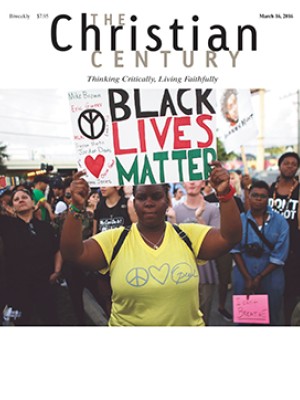Israeli religious settlers grapple with charges of inciting extremism
At the hilltop outpost of Esh Kodesh the only sound for miles around is of a dog barking or a rooster crowing.
Just 40 young religious Jewish families live on this windswept spot some 30 miles north of Jerusalem. But Israeli authorities say the seeming tranquillity of Esh Kodesh, and roughly 100 other unauthorized settler outposts built without Israeli government approval, is deceptive. They say they are a breeding ground for Jewish extremism.
A small percentage of the 10,000 “hilltop youths” residing in illegal outposts are suspected of attacking Palestinians or vandalizing churches and mosques on Palestinian-owned property, but their actions have elicited international condemnation and placed a spotlight on Israeli Religious Zionism, with which most of these teens and young adults were raised and educated. The term Religious Zionists is preferred by many of the hundreds of thousands of people who support the state of Israel as well as the right of Jews to live in the captured West Bank.
Read our latest issue or browse back issues.
Five of these youths were indicted on January 3: Amiram Ben-Uliel, 21, on charges of murdering three members of a West Bank Palestinian family in a July 2015 firebombing, and four others on a range of alleged offenses, including an attack on Dormition Abbey, a Catholic community of Benedictines in Jerusalem. All of the suspects spent time at unauthorized outposts.
The arson, which even Israel’s right-leaning politicians acknowledged as a Jewish terror attack, has left Israelis, and particularly Religious Zionists, searching for answers.
“We know there are some specific rabbis who have written books saying that when it comes to a fight with the Palestinians over land, it isn’t a crime to kill innocent civilians,” said Yariv Oppenheimer, general director of Peace Now, an activist group in Israel that is supportive of territorial compromise. “These rabbis are teaching that land is more important than the laws of the state, and no one is stopping them.”
But Religious Zionists say the picture is more complex.
Dov Birkovits, a moderate rabbi and educator, said most of the young extremists are high school dropouts.
“These youths reject Religious Zionist leadership, their teachers, their parents, and their rabbis,” he said. “They’re like juvenile street gangs in the U.S. They’re disillusioned young men rebelling against authority.”
Birkovits traced some of the youths’ disillusionment to the 2005 Gaza disengagement, when Israel’s army uprooted 10,000 Israelis from their homes and razed their communities.
“The disengagement was a deep psychological and ideological trauma” for children and teens who were taught that settling the land is a Torah commandment, Birkovits said. “They considered the leaders of the settler movement traitors for not preventing the disengagement. They’re revolting against their elders.”
Kimmy Kaplan, a scholar at Bar-Ilan University studying Jewish extremism, said young Israeli and Palestinian extremists are products of the same conflict.
“Not to justify their violent acts in any way, but it should be said that when someone lives in an ongoing violent atmosphere, it will have an influence,” Kaplan said. “When their actions are backed up by rabbis or imams associated with fringe groups, it can influence teens.”
Yuval Cherlow, cofounder of Tzohar, a modern Orthodox rabbinical organization, said the youths’ former rabbis “are cooperating with the authorities and trying to convince their former students to obey the law.”
But hilltop dwellers aren’t listening, he said. Cherlow said religious schools should be doing more to transmit democratic values.
“For religious people our laws are first and foremost God’s commandments, and the law of the state is usually secondary. In our yeshivas, much more time is devoted to religious subjects than to civil rights,” he said. “We must educate our children that democracy is a good system and that disagreements must be solved through elections and demonstrations, not by misusing power.”
Back at Esh Kodesh, which was established in 2000 to commemorate Esh Kodesh Gilmore, a victim of a Palestinian terrorist attack, residents distanced themselves from the hilltop violence and said sporadic clashes over land ownership were started by the Palestinians.
Palestinians respond that in 2014 hilltop youths torched cars, cut down 30 fruit trees in two West Bank villages, and scrawled the words Esh Kodesh on the walls.
Aron Katsof, a father of five who moved to Esh Kodesh five years ago, said those attacks “had nothing to do with us. We’re against violence and clearly it would be stupid to sign our name on a wall” at the scene of an attack.
Gazing down at his vineyard in the valley, Katsof, a native Californian who moved to the outpost from Tel Aviv, said, “I personally moved to Esh Kodesh for quality of life, but I also believe, ideologically, that the land of Judea belongs to the Jews.”
News reports suggest that Katsof and several Esh Kodesh residents may be provoking Palestinians by cultivating a field that the High Court of Justice ruled belongs to Palestinians.
He denied that the settlers are inflicting violence.
“We condemn violence,” he said. “We have nothing to do with it.”
Paraphrasing the biblical Joshua, he added: “Whoever wants to live here in peace can live in peace. Whoever wants to fight us, we will stand and protect our children.” —Religion News Service
This article was edited on March 1, 2016.





